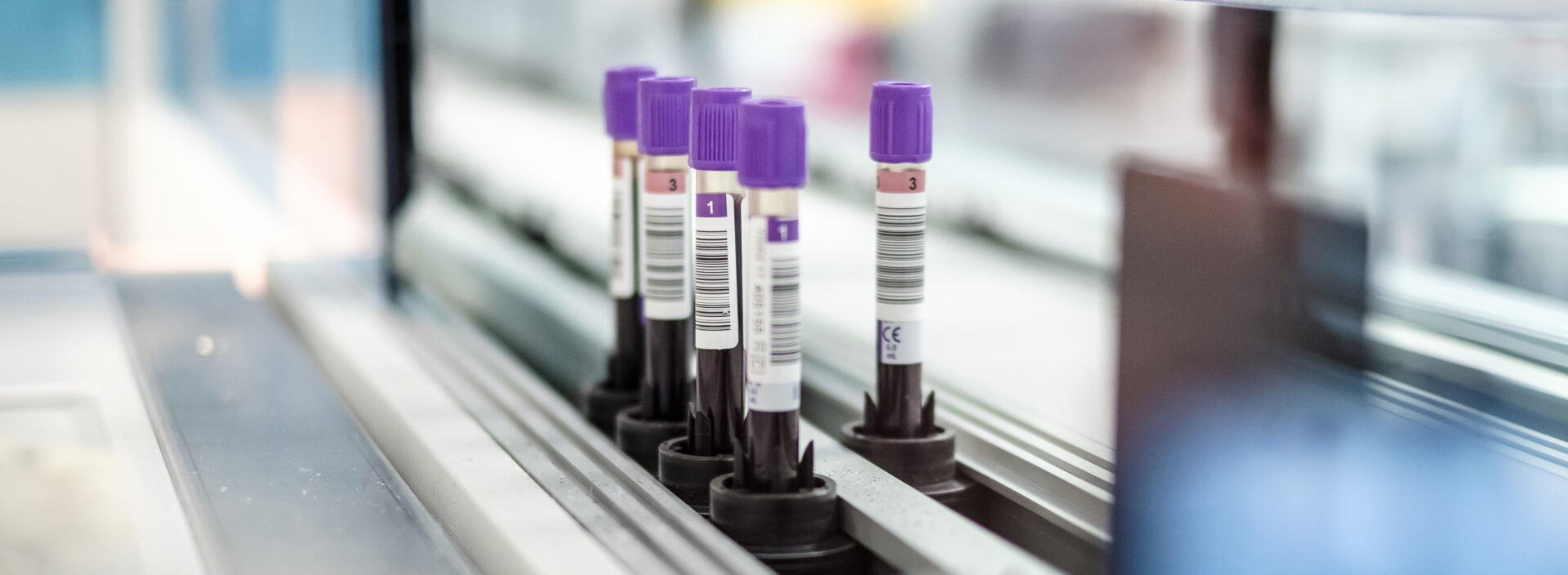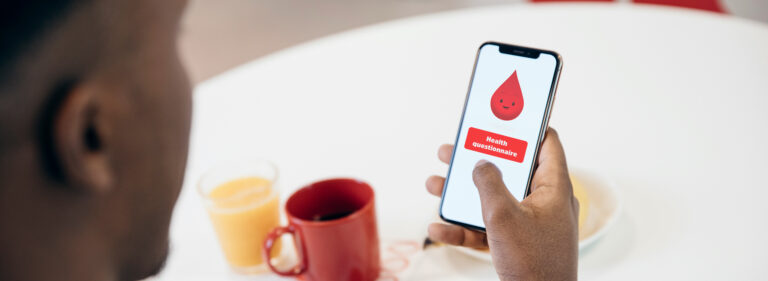How is blood screened
The most important thing for the patient receiving the blood is that the blood donor is healthy. This is why the donor’s health is examined both through the health questionnaire and laboratory tests performed on the blood samples.

The donor’s haemoglobin concentration is measured prior to each blood donation. In addition, blood samples are taken to determine the blood group and red cell antibodies and to test the blood for viruses.
Blood group and antibody tests
ABO blood groups include blood groups A, O, B and AB. The Rh blood groups are further tested for the Rh D feature that is divided into Rh D positive and Rh D negative. In addition, the Rh blood group is always tested for C, c, E and e features. The Kell blood groups are tested for the K feature that is also divided into K positive and K negative. Donors find out their blood group the second time they donate blood.
Blood samples are also tested for red cell antibodies that are formed in connection with blood transfusions or pregnancy. Because these antibodies transfer to the patient with the transfusion, blood cannot be donated if antibodies significant to blood transfusions are found in the blood.
Blood from some regular donors is also analysed for other blood group factors that may enable suitable blood to be found for certain patient groups. For example, cancer patients and patients with a rare blood group are among these special groups.
Virus tests
Each donated bag of blood is tested for HIV, hepatitis A, B and C, syphilis bacteria and parvovirus. However, very recent infections are not visible, even in the most specific laboratory tests. That is why it is crucial that donors respond truthfully to the health questionnaire.
You should never come to donate blood for virus testing or if you suspect you might have been infected.

